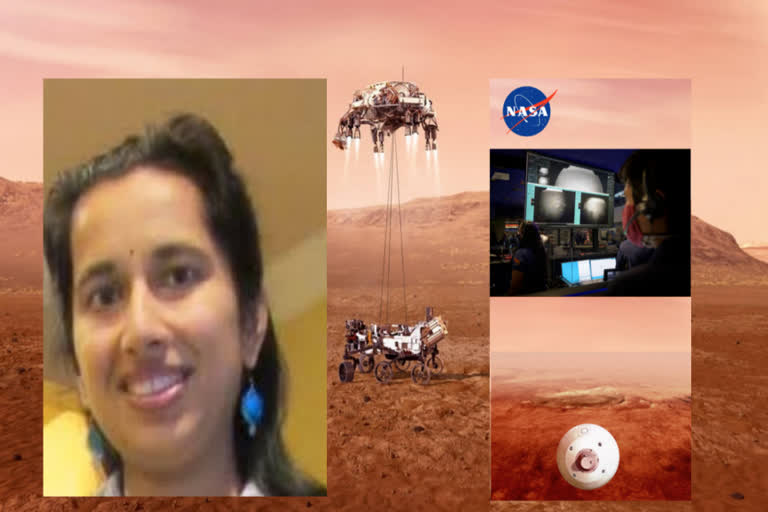New Delhi:"Touchdown confirmed! Perseverance is safely on the surface of Mars, ready to begin seeking the signs of past life," cheered Mohan, wearing a mask from the NASA headquarters in the US. The Landing was perceived to be "so dangerous" it was nicknamed "7 minutes of terror". NASA tweeted about the same.
Swati Mohan, who also participated in several key NASA missions like the Cassini (a mission to Saturn) and GRAIL (a pair of spacecraft information on the Moon), had immigrated to the US from India when she was just age one and was inspired byStar Trek' series at age 9.
Mohan holds a Bachelor of Science degree in Mechanical and Aerospace Engineering from Cornell University and completed her MS and Ph.D. from MIT in Aeronautics/Astronautics.
"@NASAPersevere is still in space right now, about 9,000 miles from Mars. So far, she is healthy and on course," NASA said in a tweet.
"Swati Mohan, @NASAJPL engineer on the rover's landing team, provides a status update on the #CountdownToMars", it added.
Mohan wanted to become a pediatrician until age 16 but she was inspired by her first physics class and saw "engineering" as a way to further her interest in space exploration.
She has been a member of the Perseverance Rover mission since its inception at NASA's Jet Propulsion Laboratory in Pasadena, California.
The largest, most advanced rover NASA has sent to another world, touched down on Mars on Thursday, after a 203-day journey traversing 472 million kms.
Packed with groundbreaking technology, the Mars 2020 mission was launched on July 30, 2020, from Cape Canaveral Space Force Station in Florida.
The Perseverance rover mission marks an ambitious first step in the effort to collect Mars samples and return them to Earth.
"This landing is one of those pivotal moments for NASA, the United States, and space exploration globally - when we know we are on the cusp of discovery and sharpening our pencils, so to speak, to rewrite the textbooks," said acting NASA Administrator Steve Jurczyk.
About the size of a car, the 2,263-pound (1,026-kilogram) robotic geologist and astrobiologist will undergo several weeks of testing before it begins its two-year science investigation of Mars' Jezero Crater.
While the rover will investigate the rock and sediment of Jezero's ancient lakebed and river delta to characterize the region's geology and past climate, a fundamental part of its mission is astrobiology, including the search for signs of ancient microbial life.
To that end, the Mars Sample Return campaign, being planned by NASA and ESA (European Space Agency), will allow scientists on Earth to study samples collected by Perseverance to search for definitive signs of past life using instruments too large and complex to send to the Red Planet.
